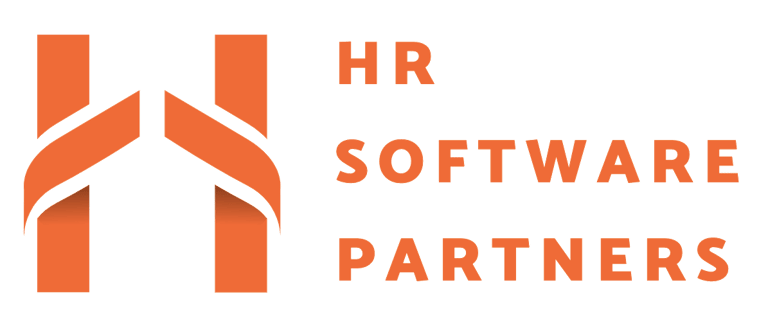10 Signs It's Time to Implement or Upgrade Your HR Software
In today's fast-paced business environment, staying ahead of the competition requires efficient and streamlined processes. One area that plays a crucial role in the success of any organization is human resources (HR). Managing employee data, payroll, benefits, and performance evaluations can be a complex and time-consuming task. That's where HR software comes in. In this blog post, we will explore the 10 signs that indicate it's time to start implementing or upgrading your HR software.
HRIS SELECTION STRATEGIES


Introduction
In today's fast-paced business environment, staying ahead of the competition requires efficient and streamlined processes. One area that plays a crucial role in the success of any organization is human resources (HR). Managing employee data, payroll, benefits, and performance evaluations can be a complex and time-consuming task. That's where HR software comes in. In this blog post, we will explore the 10 signs that indicate it's time to start implementing or upgrading your HR software.
1. Manual and Time-Consuming Processes
If your HR team is still relying on manual processes, such as spreadsheets and paper-based forms, it's a clear sign that you need HR software. Manual processes are not only time-consuming but also prone to errors. HR software automates various HR tasks, such as employee onboarding, leave management, and performance reviews, saving time and reducing the risk of mistakes.
2. Difficulty in Managing Employee Data
As your organization grows, managing employee data becomes more challenging. If you find it difficult to keep track of employee information, such as contact details, employment history, and performance records, it's a sign that you need HR software. HR software provides a centralized database where you can store and easily access all employee data, making it convenient to manage and update information.
3. Compliance and Regulatory Issues
Complying with labor laws and regulations is crucial for any organization. However, it can be a daunting task to keep up with the ever-changing legal landscape. HR software can help you stay compliant by automating processes related to tax calculations, benefits administration, and reporting. It can also generate reports and provide documentation to ensure that you meet all legal requirements.
4. Lack of Employee Self-Service Options
Empowering employees to manage their own HR-related tasks can significantly reduce the administrative burden on the HR team. If your current HR system lacks employee self-service options, such as the ability to request time off or access pay stubs, it's time to consider implementing HR software. Employee self-service features not only improve efficiency but also enhance employee satisfaction and engagement.
5. Inefficient Recruitment and Onboarding Processes
Recruiting and onboarding new employees is a critical process that sets the foundation for their success within the organization. If your current HR system makes it difficult to attract top talent, track applicants, and streamline the onboarding process, it's a sign that you need HR software. HR software can automate various recruitment tasks, such as job postings, resume screening, and background checks, making the process more efficient and effective.
6. Limited Reporting and Analytics Capabilities
Data-driven decision-making is essential for optimizing HR processes and improving organizational performance. If your current HR system lacks robust reporting and analytics capabilities, it's time to upgrade to HR software. HR software can generate various reports, such as employee turnover, performance metrics, and training needs analysis, providing valuable insights for strategic planning and decision-making.
7. Ineffective Performance Management
Managing employee performance is crucial for driving productivity and achieving organizational goals. If your current performance management system is ineffective, it's a sign that you need HR software. HR software can automate performance evaluations, goal setting, and feedback processes, making it easier to track employee performance, identify areas for improvement, and provide timely feedback.
8. Difficulty in Managing Time and Attendance
Tracking employee time and attendance is essential for accurate payroll processing and compliance with labor laws. If your current time and attendance system is manual or outdated, it's time to consider implementing HR software. HR software can automate time tracking, calculate overtime, and generate timesheets, saving time and reducing errors associated with manual processes.
9. Lack of Integration with Other Systems
In today's interconnected business environment, integration between different systems is crucial for seamless data flow and process efficiency. If your current HR system lacks integration capabilities with other systems, such as payroll or benefits administration, it's a sign that you need HR software. HR software can integrate with various systems, eliminating the need for manual data entry and ensuring data accuracy.
10. Scalability and Growth Challenges
As your organization grows, your HR processes need to scale accordingly. If your current HR system is unable to handle the increasing workload or accommodate the needs of a growing workforce, it's time to upgrade to HR software. HR software is designed to scale with your organization, providing the flexibility and functionality needed to support your HR operations as you expand.
Conclusion
Implementing or upgrading HR software can bring significant benefits to your organization, from streamlining HR processes and improving data accuracy to enhancing compliance and employee engagement. By recognizing the signs discussed in this article, you can make an informed decision and take the necessary steps to leverage the power of HR software for your organization's success. Remember, investing in HR software is an investment in your most valuable asset – your employees.
